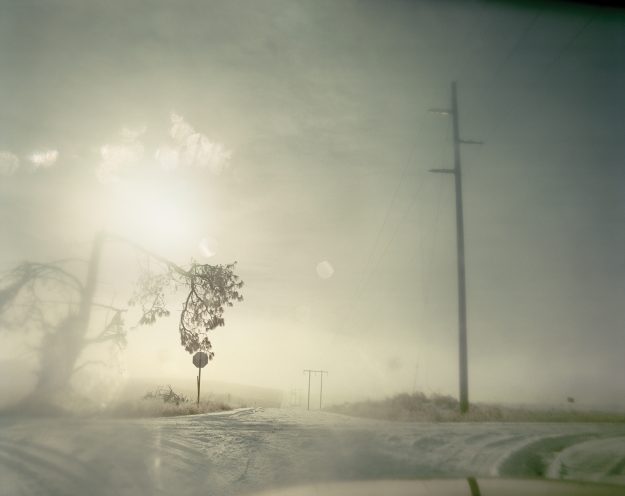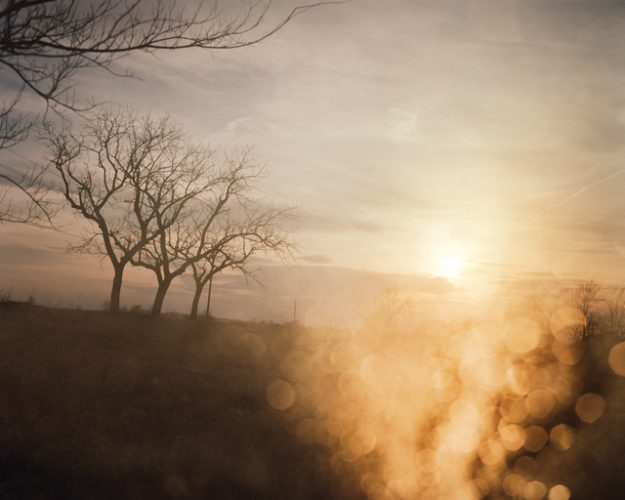I am always puzzled when I hear someone say that they have no regrets in life. I know what they mean, of course, but it just doesn’t add up for me. It’s like I’m reading a book over their shoulder: I understand the words, but only at a blurry remove. I myself am filled with regrets, big and trivial, innumerable and ever growing. My tendency toward regret is so thoroughgoing that without it, I don’t think I’d be myself. Which might not be so bad. Perhaps it’s one more thing to regret.
Where to begin? More to the point, why begin? One’s regrets can reveal a good deal about who one is, but as with so much confessional writing, this can get terribly self-indulgent terribly fast. Like talking about one’s dreams, writing about one’s inner life is seldom as interesting to others as it is to oneself. There is, though, one regret—a Buddhism-related one—that crops up so often for me that I think it might be worth talking about here. Namely, I really wish I were better at Buddhism. I’ve been at it since the early 1970s, my entire adult life, and I am not being modest when I say that my accomplishments have been modest indeed. The results of my efforts have been kind of disappointing. I thought I’d be a lot more enlightened by now.

When I read about the efforts of Olympian meditators, I feel regret that I have not developed that kind of strength of practice. Or when I read accounts by others of their life-changing experiences, I regret that I am, by comparison, rather unremarkable. This might sound like it should be pretty discouraging, but, strangely, it isn’t. At least not usually. I’ve found a home in Buddhism, off the beaten path of most of those I long ago set out with, in the Pure Land tradition, especially in the other-power teachings of Shinran. Here, the faltering nature of my attempts at progress somehow get turned upside down and become a nutrient of practice.
Shinran lived during the the Kamakura Period, which appears, in retrospect, to have been a time of great creativity in Japanese Buddhism. This was the time of such luminaries as Dogen, Esai, Nichiren, and Shinran’s own teacher, Honen. At the time, however, it was widely believed to be the onset of the age of decline of the buddhadharma, or mappo, the degenerate age predicted in scripture. This was for Honen, Shinran, and Nichiren a matter of immense importance; the gravity of the hardships and challenges of life in the time of mappo was at the core of their religious concerns and shaped their teachings.
As I do with most religious ideas, I take the notion of mappo more poetically than literally. I think people have most often regarded their own period as particularly bleak and looked to the past or future for a vision of a better world. How could we not? Even if golden ages of the past and utopias of the future are fantasies, they are fantasies that—despite their grave dangers—can serve a much-needed purpose. They give hope, but more than that, they give contour to the imaginings of our better angels and thus provide guidance for navigating the vicissitudes of the present. Like reruns of Law and Order, mappo is always on somewhere.
Based on his reading of scripture and his own experience as an ardent practitioner, Honen believed that in the degenerate age, few if any could reap the full benefits of Buddhist practice through self-reliant effort. Instead, he preached a way of faith in the saving power, the Buddha activity, of Amida, the Buddha of Infinite Life and Light. The Buddhist scholar Jacqueline Stone, in a 2006 Tricycle interview, spoke of Honen’s deep concern with how persons of limited capacity could fruitfully follow the Buddhist teachings. Honen found resolution in scriptural and commentarial sources that taught that by chanting the name of Amida Buddha, or the nembutsu, one could be assured of rebirth in Amida’s Pure Land and from there soon attain complete enlightenment. As Professor Stone explained:
For Honen, however, chanting the nembutsu [“Namu Amida Butsu”] was uniquely suited to the degenerate age, since everyone could do it. He said, if birth in the Pure Land depended on accumulating merit by sponsoring temples, then wealthy people could be born there, but poor people could not. But the poor are numerous and the wealthy are few. If reaching the Pure Land depended on mastering Buddhist doctrine, then the educated could be born there, but the uneducated could not. But the uneducated are many and the educated are few. If it depended on keeping the precepts, then the virtuous could be born there but the non-virtuous could not, and so forth. Since the scriptures tell us that Amida Buddha vowed to lead to his Pure Land all who put their faith in him, there must be a single practice—namely, the nembutsu—that is available to everyone.
Faith in Buddha might not be as onerous as converts like me frequently make it out to be. Let’s suppose you have an intuition of a spiritual dimension or pattern to things, or maybe your world is enlarged by a feeling of close connection to others. Maybe you have a perception that the life you are living is but a small part of the life you are given, or you have the discomfiting sense that in your calculated pursuits you are, as the saying goes, like someone standing on a whale fishing for minnows. It may be a sizable vision or it may be more of a peep. It probably doesn’t much matter. What matters is how you are able to appreciate this sensibility and to take it to heart—that is, to have faith in it. Shinran gave particular emphasis to this, teaching that more important than frequent repetition was the spirit of true entrusting, or shinjin, that one brings to nembutsu, regardless of how often it is spoken. For the entrusting heart, you don’t work toward Buddha; you make yourself available to let Buddha work toward you.
Being seized by the world—by a passage of literature, a breath of song, a conversation with a friend, or the sun’s appearance on an overcast day—these are Buddha remembering Buddha.
When I moved to the the Pacific Northwest, someone told me something that was very helpful for brightening the long, dark, rainy winters. Even during stretches when it might rain for weeks on end, there are, almost every day, small snatches of sunlight. Over time, one comes to love them all the more for their fragile brevity. I find that the spirituality of Pure Land is akin to that. It breaks through, surprisingly, through no effort of one’s own, unannounced, gently, and in the small moments of life. Being seized by the world—by a passage of literature, a breath of song, a conversation with a friend, or the sun’s appearance on an overcast day—these are Buddha remembering Buddha. And if you feel moved by gratitude to put that into words, you might happen to say “Namu Amida Butsu.”
In J. D. Salinger’s Franny and Zooey, the titular Zooey Glass expresses a contemporary sense of life in mappo when he says to his sister Franny, “Yes, I have an ulcer, for Chrissake. This is Kaliyuga, buddy, the Iron Age. Anybody over sixteen without an ulcer’s a goddam spy.” Zooey is using terms from Hindu cosmology, but the resonance with Buddhism’s notion of the degenerate age couldn’t be clearer or more apt. Figuratively speaking, I myself am by no means wanting of ulcers of my own. I have chronically poor health, and I am given to long bouts of severe depression. I am, by Zooey’s lights, not a spy, but if given the chance, I think I’d be tempted to trade places with one. Plus I am generously endowed with all manner of garden-variety impediments to Buddhist aspiration. Despite being lazy, ill-tempered, envious, and more, I somehow still manage to be terribly vain. In fact, I sometimes think that if my capacities and accomplishments were more to my liking, my vanity would render me completely insufferable. And I like to think that insufferableness is at least one hurdle I’ve managed to clear. At least some of the time. I hope.

Fortunately, at least for me, a heroic model of spiritual life need not be the only one. In Middlemarch, the 19th-century author George Eliot sheds light on another. The novel’s main character, Dorothea Brooke, is filled with altruistic aspiration as a young woman. But the world is not kind to her lofty ambitions, and her wishes for her life are thwarted and unfulfilled. In time, though, she finds her way to a life rich in meaning that is, while smaller in scale than what she had earlier aimed for, well suited to the reality of who she is and where she finds herself. I see in her someone who is directed by something that, while inwardly felt, is not her own to fully grasp, let alone control. It speaks to me of Shinran’s true entrusting. It works despite her striving, not because of it. And Eliot’s last word on Dorothea’s life affirms a movement of the heart that can work, without ostentation, in lives of modest attainment.
For the growing good of the world is partly dependent on unhistoric acts; and that things are not so ill with you and me as they might have been, is half owing to the number who lived faithfully a hidden life, and rest in unvisited tombs.
I find in this passage an odd kind of solace, a solace born of hopes and goals frustrated. And here’s the thing: Even the greatest of lives will eventually become hidden, and the tombs in which those living them come to rest will in time go unvisited. So it might not be so bad if one finds that the severe constancy and constraint of one’s own limits force the issue. It allows the most foolhardy to get a jump on things.
I know that some of my Buddhist friends may not buy what I’m trying to get at here. They may think I’m making excuses for my own lack of discipline or the meagerness of my experience, or that I’m just plain misguided. Who knows? Maybe I am just kidding myself. But maybe that is not the important thing. Maybe it’s more important to not kid others, like you for instance. On either score, I can try only so much, and then I must leave it to the power of something other. We human sentient beings have a way of not measuring up to the standards we hold, though, admittedly and to my personal regret, some of us are especially reliable and adept at such failing. This being so, it’s a lucky thing we have buddhas, always ready to lend a hand.